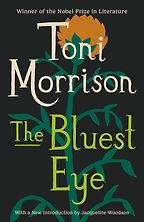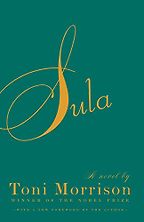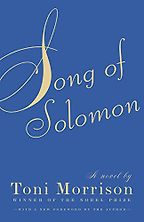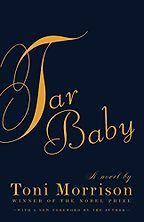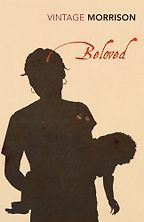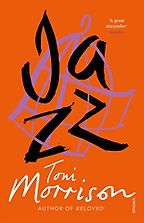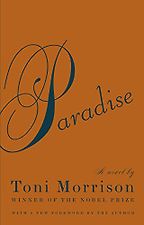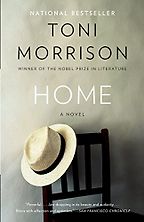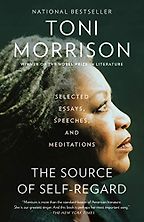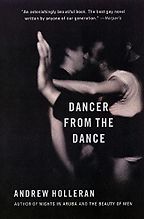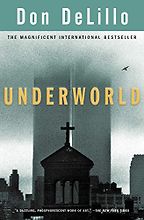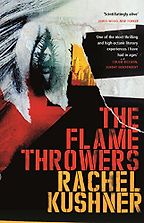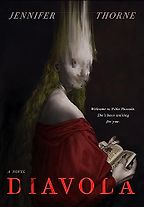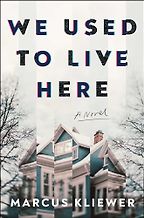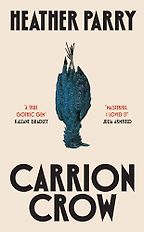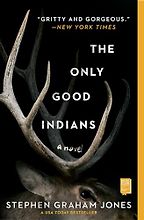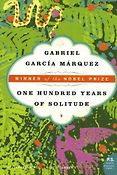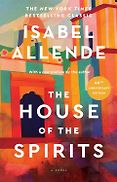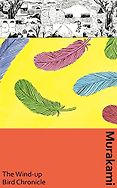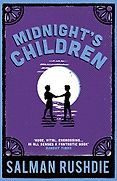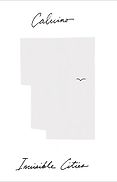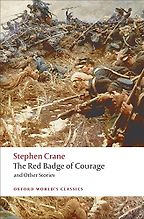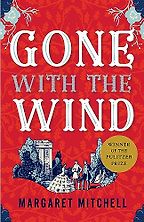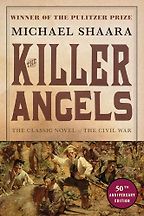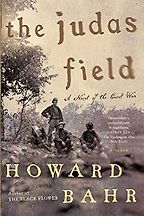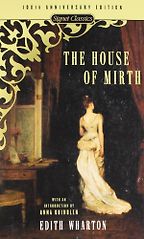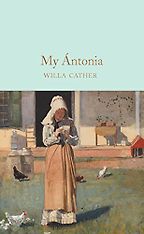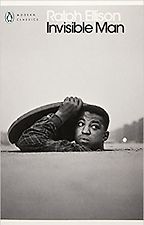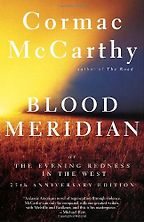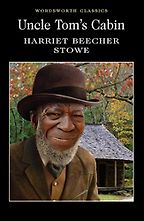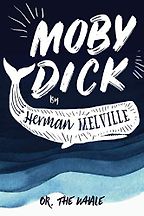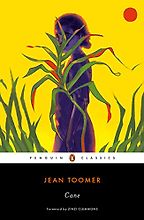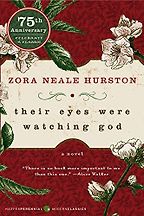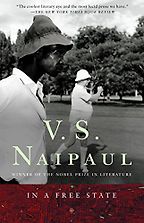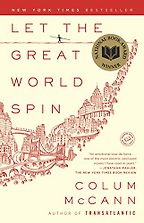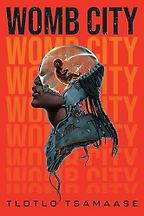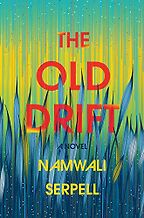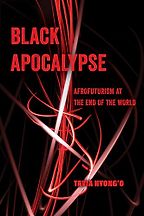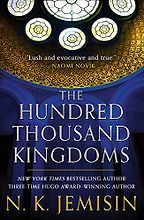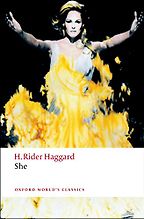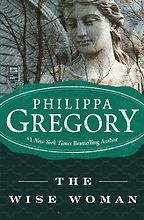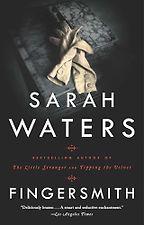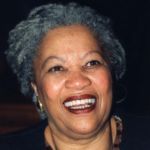
©John Mathew Smith
Books by Toni Morrison
Toni Morrison (1931-2019) was an American novelist who won the Nobel Prize in Literature in 1993. Her most famous book is her 1987 novel Beloved, which has been recommended several times on Five Books. Before her death in 2019, she was the Robert F Goheen Professor in the Humanities, Emeritus, at Princeton University.
Kaye Grabbe, a retired library director, wrote to us on Facebook with this message: “It’s a magnificent novel, but you can’t start reading Morrison with Beloved. Start at the beginning with The Bluest Eye and then read each amazing novel as she wrote them. Then when you get to Beloved, you will GET IT.”
Our interview about the best Toni Morrison books is with scholar and friend Marilyn Mobley. To help readers, we’ve also put Toni Morrison’s books in order below:
“It is the story of a young, very, very disadvantaged black girl in rural Ohio in the years following the Great Depression. She has no power, a horrible life, is abused, and voiceless. Pecola looks at another little girl who is the daughter of her foster parents, a child with white skin and blue eyes, and in her child’s mind she thinks: If I only had blue eyes, people would be nice to me. She doesn’t see it as white people having one life and Black people having no rights or agency. She sees it as a very simple thing: If only I had differently coloured eyes, I’d be okay. It’s an incredibly painful novel to read. It’s about dislocation, it’s about tragedy. It’s about the impossibility of certain people being able to lift themselves out of the position they’re in, because they genuinely have no power.” Read more...
Historical Novels with Strong Female Leads
Kate Mosse, Novelist
Sula
by Toni Morrison
Sula, Toni Morrison’s second novel, was published in 1973. In the New York Times, short story writer and critic Sara Blackburn gave the book the thumbs up but also wrote, “While the setting and the characters continually convince and intrigue, the novel seems somehow frozen, stylized. A more precise yet somehow icy version of The Bluest Eye, it refuses to invade our present in the way we want it to and stays, instead, confined to its time and place.”
Song of Solomon
by Toni Morrison
With her third novel, Song of Solomon, Toni Morrison began to win critical acclaim. “It’s been a hot year for Toni Morrison. Her novel, Song of Solomon, has been hailed in all the proper places. Her characters are being compared to those of William Faulkner, her writing to that of Nabokov, Joseph Heller, and Doris Lessing,” wrote Karen de Witt in the Washington Post on September 30, 1977.
Tar Baby
by Toni Morrison
Toni Morrison’s fourth novel, Tar Baby, was published in 1981. In his review of Tar Baby in the New York Times, novelist John Irving wrote, “The more ambitious a novelist is, the more willing he is to elevate his characters to the level of myth – to give their births, their relationships, their deaths, even their names, the resonance of legend. Dickens conveys such an ambition in his titles (”Bleak House,” ”Great Expectations,” ”Hard Times”) and of course in his characters’ names (Lady Dedlock, Mr. Jaggers, Gradgrind). The 19th century novel is rich with such risk, such mischief. Toni Morrison seems to be returning such risk and mischief to the contemporary American novel, and never more extravagantly than in Tar Baby, her fourth and most ambitious book.
“Beloved was Morrison’s fifth novel. It’s a gripping story, inspired by a famous abolitionist case, the true story of a woman who runs away from slavery with her children, but when the slave catchers catch up with her, she kills one of her own and tries to kill the others, rather than returning them to slavery. The specter of slavery is unrecognized and unnamed; it is embodied in a ghost-like, other-worldly figure. It’s a novel about trauma and psychic scarring, but it’s a novel that points toward a necessary reckoning with what she calls the black and lonely dead, those lost from the Middle Passage, through abolition to the racial violence of the twentieth century.” Read more...
The Best African American Literature
Farah Jasmine Griffin, Literary Scholar
“It’s set in the 1920s and in it there’s a beautiful commingling of jazz, Harlem streets and a sense of romance and possibility. The novel, formally, feels like a piece of jazz. It feels like riffs and improvisations and recurring refrains. In that sense it’s a fairly experimental novel, which is perhaps why it hasn’t been as seized upon, or lauded, within her oeuvre. Again, I think it’s a novel of desire and intoxication, something we keep coming back as we talk about New York and its fictions.” Read more...
Hermione Hoby on New York Novels
Hermione Hoby, Journalist
“Morrison is very good at taking a period we think we know—the 50s and the Korean War, for example—and creating an opportunity for us to imagine it differently to reveal truths we had missed altogether. She was aware that the 50s had been romanticized, so she was eager to illustrate how what may have been “happy days” for some people were not happy days for others. In Home, she centers the story around a Korean vet, Frank Money, who returns home and must simultaneously face the haunting atrocities of war and discover that the horrors of racism in America remain as they were before he left. Indeed, one of the people he meets says, “‘don’t let that uniform and all that fool you, you know you’re still here in the South.”” Read more...
Marilyn Mobley, Literary Scholar
“In The Source of Self-Regard, Morrison returns to ideas she introduced in her Nobel lecture about how language operates and how some of the ways we treat each other in the space we call “home” get replicated in one place after another. The book is a volume of essays, meditations, speeches, college lectures, and even tributes to people like her dear friend, James Baldwin, and others where she takes on huge issues like censorship, immigration, sexism, violence, and the role of memory in historicizing the past. “ Read more...
Marilyn Mobley, Literary Scholar
Interviews where books by Toni Morrison were recommended
The Best Toni Morrison Books, recommended by Marilyn Mobley
In 1993, the Nobel Prize in Literature was awarded to American novelist Toni Morrison, “who in novels characterized by visionary force and poetic import, gives life to an essential aspect of American reality.” Here, literary scholar Marilyn Mobley—Professor Emerita of English and African American Studies at Case Western Reserve University and a former President of the Toni Morrison Society—introduces her work, from the best novel to start with to the essays she published just before her death in 2019.
Hermione Hoby on New York Novels
The writer and journalist Hermione Hoby’s highly acclaimed first novel is set during a New York heatwave. Here she picks five books inspired by this capacious, overstated, indomitable city and discusses how it shaped her as a writer.
The Best Gothic Fantasy Novels, recommended by C.J. Cooke
Gothic fantasy helps us explore what is hidden, disturbing and liminal in our own lives, explains author C.J. Cooke. She introduces her top five gloriously Gothic novels, featuring haunted houses, attic prisons, carrion crows, and ghost children – and an underlying exploration of personal and collective traumas.
-

1
One Hundred Years of Solitude
by Gabriel García Márquez, translated by Gregory Rabassa -

2
The House of the Spirits
by Isabel Allende -

3
The Wind-Up Bird Chronicle
by Haruki Murakami & translated by Jay Rubin -

4
Beloved
by Toni Morrison -

5
Midnight's Children
by Salman Rushdie -

6
Invisible Cities
by Italo Calvino
Magical Realism Books, recommended by Five Books interviewees
Magical Realism Books, recommended by Five Books interviewees
If you enjoy some fantastical elements in your literature—but you aren’t quite ready for full-on swords and sorcery—then perhaps magical realism books are for you. As a genre, magical realism is often associated with South America, thanks in large part to the ‘father of magical realism’ Gabriel García Márquez and mega-bestselling books by Isabel Allende, but examples can be found from all over the world. We’ve put a list of must-read titles.
Classic Novels of the American Civil War, recommended by Craig A. Warren
The American Civil War (1861–1865) was a watershed moment in the history of the United States—and, as a result, has made an enormous impact on American literature, explains Craig A. Warren, author of Scars to Prove It: The Civil War Soldier and American Fiction. Here, he recommends five key texts: classic novels of the American Civil War that, together, offer a panoramic view of a country in crisis.
The Best 20th-Century American Novels, recommended by David Hering
The story of America is not one of a manageable unified nation, says novelist and critic David Hering. It may, however, be the story of America’s dream — which is why many of the best American novels have a distinctly dreamlike quality. He picks out five of the best American novels of the 20th century, from 1905 through to 1987.
The Great American Novel, recommended by Lawrence Buell
Albeit an object of satire and overreach, the ‘Great American Novel’ remains a vital concept in American literature, encouraging writers to capture the essence of national culture and history, argues Lawrence Buell, Professor of American Literature Emeritus at Harvard University. He talks us through the origins of the phrase and nominates five novels as contenders.
The Best African American Literature, recommended by Farah Jasmine Griffin
An ever-growing body of authors are writing about the reality of what it means to be black in America, says Farah Jasmine Griffin, director of the Institute for Research in African American Studies at Columbia University. Here she recommends five works of African American literature, from greats like Zora Neale Hurston and Toni Morrison to lesser-known gems by Ann Petry.
Esi Edugyan on Books That Influenced Her
Canadian author Esi Edugyan, whose novel Washington Black is shortlisted for the 2018 Man Booker Prize, picks five books that have inspired her novels, and shares wisdom on what it means to read fiction today
Afrofuturist Books, recommended by Eugen Bacon
‘Afrofuturism’ is a term that has come to describe books about the Black experience through a speculative lens. We asked Eugen Bacon, the award-winning fantasy author and member of the Sauúti Collective—who, together, have created a shared fictional universe—to recommend five key Afrofuturist books.
Historical Novels with Strong Female Leads, recommended by Kate Mosse
Female stories often went unrecorded in history—but that’s not because there weren’t any, explains Kate Mosse, the acclaimed novelist and nonfiction writer. Here, she explores the role of fiction in illuminating historical events when the written record is thin, and recommends five novels with strong female protagonists that have influenced her own work.
